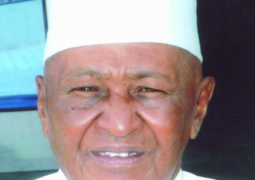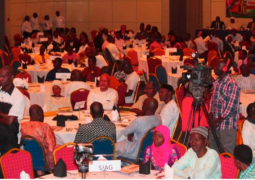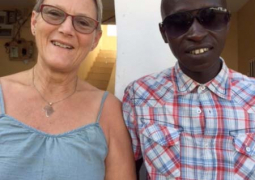The Ministry of Energy in collaboration with the ECOWAS Commission and the UNDP yesterday launched the Gambia National Multi-Sectoral committee on access to energy services.
In his inaugural speech, Modou O. Njie, permanent secretary of the Ministry of Energy, said the availability of a reliable system of energy supply that is affordable, efficient and environmentally sound, is one of the vital components of the Gambia Government’s development agenda which focuses on poverty alleviation and achievement of the millennium development goals.
He noted that without the widespread access to modern energy services, it will be difficult to make necessary value addition to their primary productions and thus modernizing the economy.
He went on to say that because of the crucial role energy plays in socio-economic development, access to energy services has now become the new frontier in fighting poverty and social exclusion.
“The Government of The Gambia is fully informed of the challenges involved in this fight and is battle-field-ready to globally lead this fight in an environmentally sustainable manner and for the betterment of mankind,” he said.
He further stated that the Gambia Government fully appreciates the partnership role the UNDP plays in the implementation of the regional policy on access to energy services by providing the much needed technical and financial assistance to ECOWAS member countries.
He reminded the committee members of the confidence they have in them while urging them to live up to expectations.
In his statement on the occasion, Almamy Camara from UNDP Banjul office said the launching of the Gambia National Multi-Sectoral Committee (GNMC) is timely and relevant for the UNDP.
He said it coincides with the finalisation of the MDG-based Programme of Accelerated Growth and Employment (PAGE) national blueprint, among others.
“The UNDP further recognises that environment and energy is one of the three important pillars of sustainable development, of course in addition to social and economic pillars,” he said.
He added that while none of the MDGs specifically address the issue surrounding access to energy services, such an access is crucial to achieving the eight MDG goals agreed to by most of the world’s nation states.
The UNDP CO through the E&E project is happy to partner with the UNDP regional energy programme for poverty reduction and the ECOWAS/UEOMO (West African Economic Monetary Union) to launch the Gambia committee and support the Gambian first ever MFP to be piloted to 5 rural communities in the Fonis and Kiangs, he said.
For his part, Girma H. Bekele, Energy Advisor with ECOWAS, says ECOWAS believes that energy access is the gate way for sustainable human development and without which the twin objective – neither the achievement of regional integration nor the improvement of the livelihood of its 300million population could be realised. “This is why the ECOWAS and UEMOA have set the white paper,” he said.
He added that member states such as The Gambia have embraced the move to, in a much more comprehensive and integrated manner, express in the near-to-be adopted 2012-2015 PAGE.
The PAGE, he said, has recognised the key role being played by the multi-faceted energy sector serving as engine for inclusive and equitable growth among all Gambians.
According to him, the new committee on access to energy services that is being launched has the responsibility of engaging the government at the policy level to mainstream energy access in all its sustainable endeavours.




